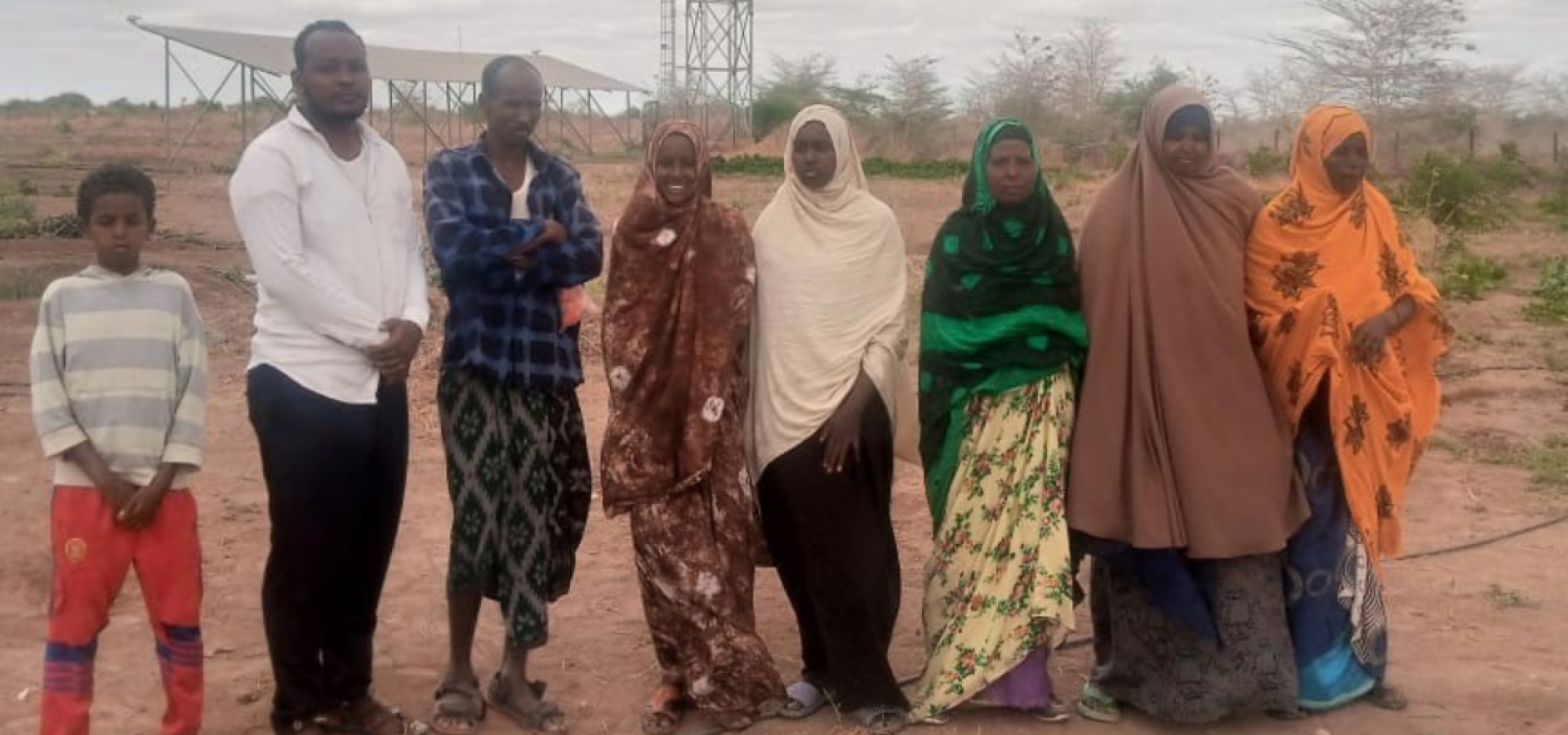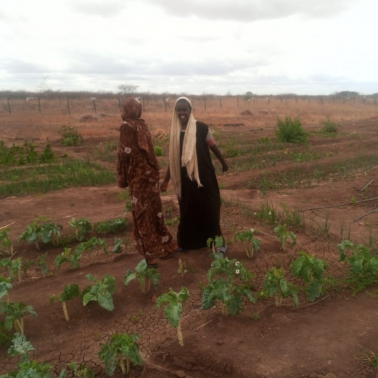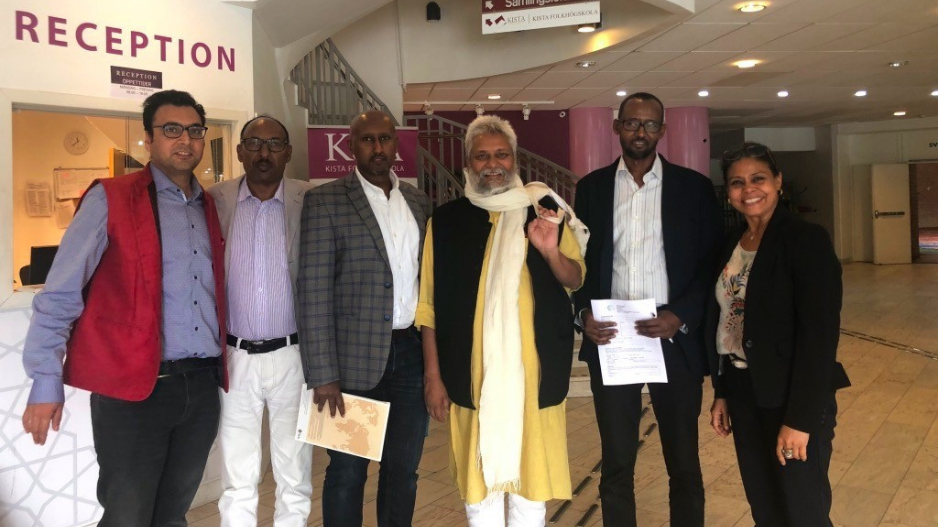In August 2019, Dr. Rajendra Singh from TBS and Sunita Raut from Four Rooms of Change, a group as well as a methodology that supports innovation, met with Rishabh Khanna and Hassan Mohmud from Initiatives for Land, Lives and Peace (ILLP) in Sweden. Water connected these three individuals, as they intuitively knew that bringing water to the arid lands of the Horn of Africa is what they all needed to do. At the time, nobody knew how that would happen, but they had hope in their hearts and, more importantly, determination.
In February 2020, Mukhtar Ogle gave a keynote speech on environment and security at the Towards a Humane World conference at Asia Plateau, the Initiatives of Change conference centre in India. He also visited the pioneering work in watershed management of Grampari, a rural development NGO inspired by Initiatives of Change. And he heard more about Dr. Rajendra Singh.
‘Bring this to Kenya,’ said Mukhtar, ‘and we will transform the region’.
Rishabh, Sunita and Hassan were ready to deliver Dr. Singh’s land and life-restoring methodology to northeastern Kenya. But COVID-19 had struck and the prospects of engaging with a remote town in northeastern Kenya seemed impossible.
That’s when Rishabh and Sunita initiated a Whatsapp group, linking Dr Singh with Mukhtar. The two men had conversations after that point, and the thought occurred to Mukhtar to take online sessions in Hindi from Dr Singh, and to then create an online training module in English from those teachings. Rishabh and Sunita decided to devote their spare time to do it – and so ‘The Water Warriors’ training programme was born.
Mukhtar was also not deterred by the difficulty of learning Hindi or of undertaking this initiative. He spoke with the community in Habaswein, nominated Abdi Ahmed to be their spokesman and told them that they would get participatory online training from Sweden.


